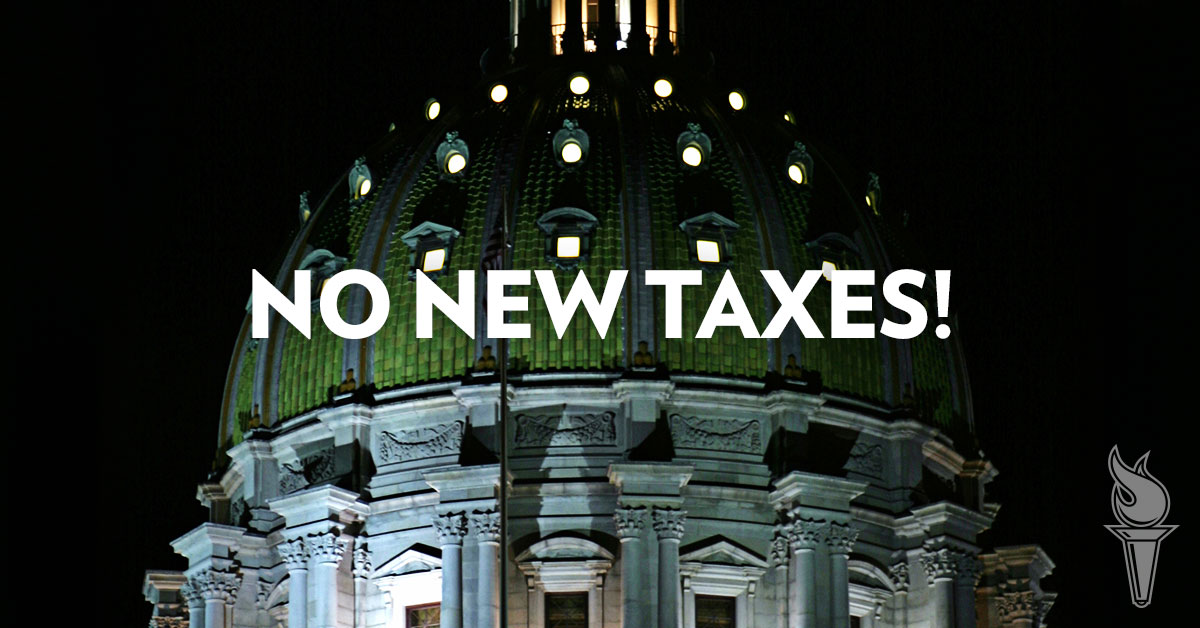Media

State Spending Addiction Leads to Tax Hike
Lawmakers are on the cusp of pushing through a $650 million tax increase on working Pennsylvanians.
Earlier this afternoon—without much warning or debate—a conference committee passed House Bill 1198, which purportedly raises $750 million (as part of a $1.3 billion revenue package) to balance the state’s presently illegal budget.
The bill does not raise sales or income taxes, and represents only a fraction of Gov. Wolf's original tax hike proposal.
However, this seventh tax hike proposal does include eight different tax hikes to pay for massive spending increases agreed to last month. Here are the tax hikes up for consideration:
- $1 per pack cigarette tax hike. This tax is an unreliable revenue source, would disproportionately harm the poor and do little to dramatically reduce the number of smokers in Pennsylvania. The tax could potentially hit 2 million adult smokers in the state.
- Other tobacco tax increase. House Bill 1198 would impose a 55-cents-per-ounce tax on roll-your-own-tobacco and smokeless tobacco, taking an estimated $50 million out of the pockets of small business owners and their customers.
- E-cigarettes tax. The proposal would slap a 40 percent excise tax on the wholesale price of electronic cigarettes.
- Entertainment tax. A 6 percent sales tax would be added to all purchases of downloaded digital videos, books, games, music, and applications.
- Bank savings tax. Raises the shares tax on bank and trust companies. According to testimony from the PA Bankers Association, the current bank shares tax is already higher than most other states, and raising it could hurt lending in the commonwealth.
- Business owner tax hike. The legislation reduces the “vendor discount” offered to retail stores who collect sales taxes for the state. As the Lancaster Chamber of Commerce has pointed out, the vendor discount is “justifiable compensation to recover a small portion of the actual costs incurred by acting as a tax collector…” Under this proposal, the price of acting as a collection agency for the state would rise.
- Another gambling tax. State law would require casinos to pay a new 2 percent tax on their gross revenue generated from table games.
- A luck tax. If you happen to win the lottery, state government will be skimming 3.07 percent off the top.
Despite 8 new tax increases raising an estimated $650 million, the budget is still not balanced. Why?
Lawmakers are relying on $100 million from online gambling—though the legislature has yet to pass the legislation to legalize it. The budget also relies on borrowing $200 million from a state medical malpractice insurance fund.
The state constitution doesn’t say the legislature can pass something pretty close to a balanced budget, or a promise to balance the budget in the near future. It requires a balanced budget, officially saying, “Operating budget appropriations made by the General Assembly shall not exceed the actual and estimated revenues and surplus available in the same fiscal year.”
Pension and charter school reform, two issues previously included as part of this budget negotiation, were not addressed. Lawmakers indicated they plan to address these issues this fall.
One positive reform to note: Lawmakers are advancing a school code bill that includes a $25 million increase in the Educational Improvement Tax Credit (EITC) program. The EITC, which provides tens of thousands of private school scholarships to students in need, is a pillar of school choice in Pennsylvania.
The EITC expansion is one bright spot in an otherwise dark set of tax hikes.